
Summer reading
Rony Brauman, Jean-Hervé Bradol, Michaël Neuman, Marc Le Pape, Judith Soussan & Fabrice Weissman
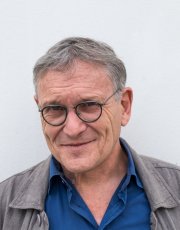
Medical doctor, specialized in tropical medicine and epidemiology. Involved in humanitarian action since 1977, he has been on numerous missions, mainly in contexts of armed conflicts and IDP situations. President of Médecins sans Frontières from 1982 to1994, he also teaches at the Humanitarian and Conflict Response Institute (HCRI) and is a regular contributor to Alternatives Economiques. He has published several books and articles, including "Guerre humanitaires ? Mensonges et Intox" (Textuel, 2018), "La Médecine Humanitaire" (PUF, 2010), "Penser dans l'urgence" (Editions du Seuil, 2006) and "Utopies Sanitaires" (Editions Le Pommier, 2000).
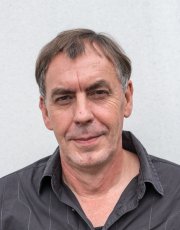
Medical doctor, specialized in tropical medicine, emergency medicine and epidemiology. In 1989 he went on mission with Médecins sans Frontières for the first time, and undertook long-term missions in Uganda, Somalia and Thailand. He returned to the Paris headquarters in 1994 as a programs director. Between 1996 and 1998, he served as the director of communications, and later as director of operations until May 2000 when he was elected president of the French section of Médecins sans Frontières. He was re-elected in May 2003 and in May 2006. From 2000 to 2008, he was a member of the International Council of MSF and a member of the Board of MSF USA. He is the co-editor of "Medical innovations in humanitarian situations" (MSF, 2009) and Humanitarian Aid, Genocide and Mass Killings: Médecins Sans Frontiéres, The Rwandan Experience, 1982–97 (Manchester University Press, 2017).
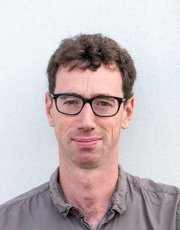
Director of studies at Crash / Médecins sans Frontières, Michaël Neuman graduated in Contemporary History and International Relations (University Paris-I). He joined Médecins sans Frontières in 1999 and has worked both on the ground (Balkans, Sudan, Caucasus, West Africa) and in headquarters (New York, Paris as deputy director responsible for programmes). He has also carried out research on issues of immigration and geopolitics. He is co-editor of "Humanitarian negotiations Revealed, the MSF experience" (London: Hurst and Co, 2011). He is also the co-editor of "Saving lives and staying alive. Humanitarian Security in the Age of Risk Management" (London: Hurst and Co, 2016).
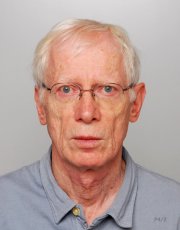
Marc Le Pape has been a researcher at the CNRS and then at the EHESS. He is currently a member of the scientific committee of the CRASH. Formerly with the CNRS, Marc Le Pape is currently a researcher at the l'Ehess (Centre d'études africaines). He has carried out research in Algeria, Côte d'Ivoire and Central Africa. His recent studies have focused on the Great Lakes region in Africa. He has co-directed several publications: Côte d'Ivoire, l'année terrible 1999-2000 (2003), Crises extrêmes (2006) et dans le cadre de MSF : Une guerre contre les civils. Réflexions sur les pratiques humanitaires au Congo-Brazzaville, 1998-2000 (2001) and Génocide et crimes de masse. L'expérience rwandaise de MSF 1982-1997 (2016).
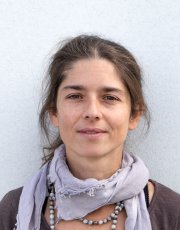
Graduated in International relations (Institut d'Etudes Politiques de Paris), Logistics in humanitarian settings (Bioforce-Développement) and Anthropology (University Paris I), Judith Soussan joined MSF in 1999. After missions in Sri Lanka, Ethiopia, Sudan and the Palestinian territories, she worked in Paris, in particular on protection of civilians. Following a few years break from MSF working as a radio reporter, she has come back to Crash in 2015. She contributed to the book "Saving lives and staying alive. Humanitarian Security in the Age of Risk Management" (chapter "Security Issues and Practices in an MSF Mission in the Land of Jihad" - London: Hurst and Co, 2016).
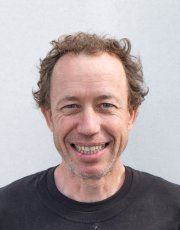
A political scientist by training, Fabrice Weissman joined Médecins sans Frontières in 1995. First as a logistician, then as project coordinator and head of mission, he has worked in many countries in conflict (Sudan, Ethiopia, Eritrea, Kosovo, Sri Lanka, etc.) and more recently in Malawi in response to natural disasters. He is the author of several articles and collective works on humanitarian action, including "In the Shadow of Just Wars. Violence, Politics and Humanitarian Action" (ed., London, Hurst & Co., 2004), "Humanitarian Negotiations Revealed. The MSF Experience" (ed., Oxford University Press, 2011) and "Saving Lives and Staying Alive. Humanitarian Security in the Age of Risk Management" (ed., London, Hurst & Co, 2016). He is also one of the main hosts of the podcast La zone critique.
A selection of books chosen by members of Crash. Happy summer and happy reading !
Le Médecin qui voulut être roi
Guillaume Lachenal (Seuil, 2017)
A historical investigation as much as a historiographic work, “Le Médecin qui voulut être roi. Sur les traces d’une utopie coloniale” is a fascinating journey in the footsteps of a French colonial doctor, Dr David. Guillaume Lachenal made his mark with his history of Lomidine (Le médicament qui devait sauver l’Afrique, La Découverte, 2014), which resulted in a Crash event / debate with the author in 2015. This book is also about sleeping sickness, but from a broader perspective: what happens when a doctor is granted full administrative powers, for public health purposes, by a colonial power? Looking back at the experiment attempted by Dr Jean Joseph David in a region of Cameroon in the 1930s, Guillaume Lachenal finds the traces it has left on contemporary society and then follows the doctor to Wallis and Futuna, where he had worked several years earlier. His book shares the story of both the investigation and the journey. Find out more
English translation forthcoming: A Colonial Solution. Dreams and Disasters of a “Wonder” Drug in Africa. Translation Noemi Tousignant, Johns Hopkins University Press, Baltimore, 2017, sous presse.
Passeur
Raphaël Krafft (Buchet-Chastel, 2017)
Raphaël Krafft is a radio journalist, known among other things, for cycling through the French regions during electoral campaigns. “Passeur” is the story of a journalist who crosses two borders: the one between France and Italy, which separates Vintimille from Menton, and the other that separates the witness from the actor. Describing his initial involvement as a citizen and journalist with Parisian migrants and his increasing interest in exiles arriving at the gates to Europe, in “Passeur” Raphaël Krafft tells the story of a change in attitude. Having set off to investigate how migrants secretly pass through cols on the border, he finds himself confronting his own conscience and agreeing to help two young Sudanese who are trying to get to France. Find out more
Migration: A new Perspective. Building Global Governance
Bertrand Badie, Rony Brauman, Emmanuel Decaux, Guillaume Devin, Catherine Whitol de Wenden (La Découverte, 2008)
The authors of this book defend the idea of “good mobility”, countering the current policy of “Fortress Europe”, and suggest an approach to the project of managing global migration. Published in 2008, before the “migrant crisis”, the book invites us to look beyond the opposition between the right to mobility and the right of residence, by organising the phenomenon of migration from the perspective of the common interests of host countries and countries of origin, in particular by opening up the possibility of “pendular” movements. Find out more
De Lesbos à Calais : comment l’Europe fabrique des camps
Babels (Le passager clandestin, 2017)
A study of the issue of camps as a new form of emergency accommodation in Europe. This book questions the role of control structures of this kind in Europe, based on field investigations and first-hand accounts. Find out more
The truce
Primo Levi (The Bodley Head, 1965)
Less well known than “If This is a Man”, his major account of the concentration camps, The Truce is a wonderful little book that varies between gravity and (relative) light-heartedness. It describes the period of Primo Levi’s life between the liberation of Auschwitz and returning to his home in Italy, which took over ten months! Interminable months of waiting for the survivors, who were lugged from camp to camp, in Poland, Russia, Romania and elsewhere. It’s a story full of humour, of an unlikely wander through the heart of a devastated Europe, a daily life of boredom, getting by, friendships and rediscovering life’s small pleasures, against a background of constant uncertainty as to what tomorrow might bring. On the way, Primo Levi sketches some magnificent human portraits of his fellow exiles. Find out more
State of Rebellion, Violence and Intervention in the Central African Republic
Louisa Lombard (Zed Books, 2016)
Louisa Lombard’s book, published in 2016, is an important read against the background of ever-increasing violence in the Central African Republic and given the few high-quality books that deal with the country’s political and social dynamics. As an anthropologist who has worked primarily in the north-eastern border areas, the author has a rare and sophisticated understanding of what drives the political violence that occurs throughout the country. However, her analysis also includes a less than benevolent view of the international initiatives aimed at curbing the violence or even resolving the conflict, and thus launching the great project of building the CAR. Find out more
Les coupeurs de route. Histoire du banditisme rural et transfrontalier dans le bassin du lac Tchad
Issa Saibou (Karthala, 2010)
The consequences of rural crime in the Lake Chad region have sometimes been as dramatic for the people there as war: villages besieged and pillaged, children kidnapped and money extorted from their families, deadly ambushes on the roads, raids on livestock and food supplies, displaced persons trying to flee persecution by criminals, etc. A historian teaching at the University of Maroua, in the far north of Cameroon, Issa Saibou describes in detail the history of the phenomenon and how it fits into the local social and political dynamic.
Using numerous examples and accounts, he demonstrates the porosity that exists between political violence and criminal violence, the key role of the local and national authorities in creating, maintaining and conversely, eliminating criminality, the ambiguous attitude of societies towards “their” criminals (simultaneously feared, loathed and admired by the population), the transformations that have taken place in criminality and its industrialisation in recent times, etc. At the same time, Issa Saibou offers multiple keys to understanding the violence that is currently raging in the Central African Republic, northern Cameroon, Nigeria and Lake Chad, the confrontational and cooperative relationships and the multiple links between the criminals, rebels, state authorities and traditional leaders. Find out more
L’embuscade de Palestro, Algérie 1956
Raphaëlle Branche (Armand Colin, 2010)
How do you tell the story of an ambush? This book is famous for the multiple frameworks it uses to tell the story and explain the ambush, its preparation, consequences, media impact and political objectives for the FLN commando unit Ali Khodja. Find out more
Medical Humanitarianism. Ethnographies of practice
Sharon Abramowitz et Catherine Panter Brick (University of Pennsylvania Press, 2015)
This joint publication, focusing on anthropological observation of humanitarian medical practices, is one of the most interesting books on the humanitarian sector published in recent years, both in terms of the diversity of situations studied (a dozen) and the density of most of the chapters that make up the book. From camps in Uganda to the medical treatment of asylum seekers in Israel and the questions raised when a humanitarian NGO (MSF, as it happens) leaves Liberia, the authors offer an unparalleled breadth of understanding, which genuinely merits a detailed exploration. Find out more
The Origins of AIDS
Jacques Pepin (Cambridge University Press, 2011)
(...) are as impenetrable as the ways of the Lord. How do you take a scientific approach to a question that science cannot formally answer? Jacques Pépin, a Canadian specialist in infectious diseases, tackles the subject with gusto, even to the point of moving outside his strict area of expertise. More than the thesis he outlines, the deductive paths he follows offer an opportunity to understand the development of HIV epidemics in their socio-historical contexts. A salutary read, at a time when people are claiming that a biological and social phenomenon that has already caused the early deaths of tens of millions of people is over. May this book help them understand that iatrogenic hygiene practices (in this case, contaminating injections) might have played a significant role in the appearance of large-scale HIV epidemics. It is clearly essential that we remember the damage caused by previous disease-eradication initiatives at a time when states and international organisations are promising that AIDS will have disappeared in a few years. Find out more
Clavel chez les majors
Léon Werth (Viviane Hamy, 2006)
The experience of a soldier and patient in hospitals in the civilian zone during the Great War (the “first”). Léon Werth paints pictures of the sometimes acerbic, sometimes heart-warming stories of doctors, nurses, other patients and the military authorities. Find out more
Mind the Gap: Hierarchies, Health and Human Evolution
Richard Wilkinson (Yale University Press, 2002)
In its Millennium Development Goals, the United Nations presents poverty reduction as the aim of any good development policy. This book takes a different view of development, looking not at poverty itself but income inequality. The author, an epidemiologist, starts from the observation that mortality is higher where income inequalities are greatest, rather than where average income is lowest. He offers a fascinating and accessible scientific analysis, based on the biology of stress. Find out more
To cite this content :
Rony Brauman, Jean-Hervé Bradol, Michaël Neuman, Marc Le Pape, Judith Soussan, Fabrice Weissman, “Summer reading”, 3 juillet 2017, URL : https://msf-crash.org/en/blog/war-and-humanitarianism/summer-reading
If you would like to comment on this article, you can find us on social media or contact us here:
Contribute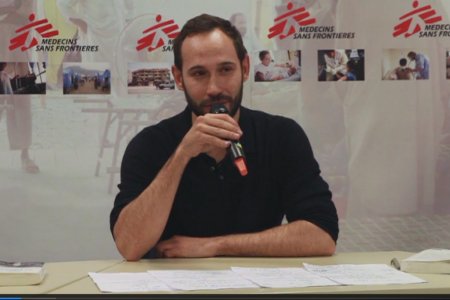 Conference
Conference
"Le médicament qui devait sauver l’Afrique"
02/07/2015 - 01:30 PM 07:30 PM Michaël NeumanGuillaume Lachenal, historien de la médecine, dresse une lumineuse « anthropologie de la bêtise coloniale » dans son récent ouvrage 'Le médicament qui devait sauver l'Afrique, un scandale pharmaceutique aux colonies' paru en octobre 2014. La Lomidine, alors considérée par les autorités coloniales comme un remède miracle contre la maladie du sommeil, a été massivement utilisée au cours de campagnes d'injection supposées contribuer à éradiquer la trypanosomiase... malgré la découverte de l'inefficacité et de la dangerosité de la molécule.
Période
Newsletter
Subscribe to our newsletter to stay informed about our latest publications. Interested in a specific author or thematic? Subscribe to our email alerts.

Add new comment